第7章 "EOTHEN"(2)
169) Kinglake speaks of his "native bells - the innocent bells of Marlen, that never before sent forth their music beyond the Blaygon hills." Marlen bells is the local name for the fine peal of St. Mary Magdalen, Taunton. The Blaygon, more commonly called the Blagdon Hills, run parallel with the Quantocks, and between them lies the fertile Vale of Taunton Deane. "Damascus," he says, on p. 245, "was safer than Oxford"; and adds a note on Mr. Everett's degree which requires correction. It is true that an attempt was made to NON-PLACET Mr. Everett's honorary degree in the Oxford Theatre in 1843 on the groundof his being a Unitarian; not true that it succeeded. It was a conspiracy by the young lions of the Newmania, who had organized a formidable opposition to the degree, and would have created a painful scene even if defeated. But the Proctor of that year, Jelf, happened to be the most- hated official of the century; and the furious groans of undergraduate displeasure at his presence, continuing unabated for three-quarters of an hour, compelled Wynter, the Vice-Chancellor, to break up the Assembly, without recitation of the prizes, but not without conferring the degrees in dumb show: unconscious Mr. Everett smilingly took his place in red gown among the Doctors, the Vice- Chancellor asserting afterwards, what was true in the letter though not in the spirit, that he did not hear the NON-PLACETS. So while Everett was obnoxious to the Puseyites, Jelf was obnoxious to the undergraduates; the cannonade of the angry youngsters drowned the odium of the theological malcontents; in the words of Bombastes:
"Another lion gave another roar, And the first lion thought the last a bore."The popularity of "Eothen" is a paradox: it fascinates by violating all the rules which convention assigns to viatic narrative. It traverses the most affecting regions of the world, and describes no one of them: the Troad - and we get only his childish raptures over Pope's "Homer's Iliad"; Stamboul - and he recounts the murderous services rendered by the Golden Horn to the Assassin whose SERAIL, palace, council chamber, it washes; Cairo - but the Plague shuts out all other thoughts; Jerusalem - but Pilgrims have vulgarized the Holy Sepulchre into a Bartholomew Fair. He gives us everywhere, not history, antiquities, geography, description, statistics, but only KINGLAKE, only his own sensations, thoughts, experiences. We are told not what the desert looks like, but what journeying in the desert feels like. From morn till eve you sit aloft upon your voyaging camel; the risen sun, still lenient on your left, mounts vertical and dominant; you shroud head and face in silk, your skin glows, shoulders ache, Arabs moan, and still moves on the sighing camel with his disjointed awkward dual swing, till the sun once more descending touches you on the right, your veil is thrown aside,your tent is pitched, books, maps, cloaks, toilet luxuries, litter your spread-out rugs, you feast on scorching toast and "fragrant" tea, sleep sound and long; then again the tent is drawn, the comforts packed, civilization retires from the spot she had for a single night annexed, and the Genius of the Desert stalks in.